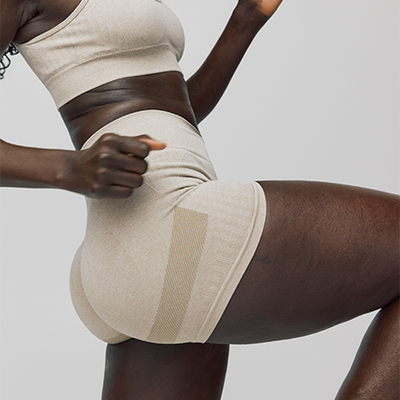

Having a period has always come with the understanding that you might feel miserable for roughly a week every month. Every month, you will experience fatigue, bloating, and migraines, and there is little to nothing you can do about it. However, that doesn’t always have to be the case. Although every period is different, and no two people are the same, prioritizing your mental and physical health can be a beneficial way to manage your period.
If you’re struggling, read on for 4 self-care tips that can help you feel your best during your period:
1. Watch what you eat
Period food cravings are real, so you might find yourself grabbing your favorite sweet snacks more often than usual. During your period, your body is going through hormonal changes, so you may start to crave salty or sweet foods, like chocolate or chips. Although it’s normal to experience a stimulated appetite, the constant cravings and hunger can lead you to binge on unhealthy foods, leading to an unhappier you. This doesn’t mean you can’t enjoy your favorite ice cream or snack. However, make sure you are also supplying your body with foods that can help you combat any negative effects your period might be having on you.
Focus on staying hydrated while you manage your period, with water-rich fruits, like watermelon or cucumber. Incorporating fruit into your smoothies can also act as a sweet treat to help with sugar cravings without overloading on refined sugars. Additionally, try including protein-rich foods like chicken or fish (a great source of iron) into your diet. During your period, it’s common to experience a dip in your iron levels, leading to fatigue and dizziness. Adding a protein or a leafy green rich in iron to your dinner can make a big difference in your mental sharpness. What you put in your body matters, so be mindful of any unhealthy eating patterns that might be hindering you.
2. Don’t ignore your mental health
While feeling your best physically while you manage your period can seem impossible, feeling your best mentally can also be a challenge. Emotional symptoms such as mood swings, trouble sleeping, and feelings of anxiety or depression are just some of the negative emotions you might endure during, before, or even after your menstrual cycle. Journaling is a great way to keep tabs on your day-to-day emotions while also being an outlet for unpacking and reflecting on your daily experiences.
However, if you find yourself really struggling to feel happiness or a sense of motivation, don’t leave your mental health up in the air. Talk to a professional who can help direct you to a beneficial service like online therapy. Therapy is beneficial for everyone and can give you a more personalized approach to your mental health. Seeking a therapist or attending group therapy can give you the tools to learn lifelong coping skills. Maintaining your mental health is a lifelong journey, so don’t let low moments stop you from becoming the best version of yourself.
3. Spend Time On You
More often than not, life can get hectic, leaving little to no time to spend on yourself and your hobbies. But, in order to feel your best, you have to spend quality time with yourself. Whether that be focusing on creating healthy habits or your favorite activities. If you have trouble sleeping during menstruation, then focus on building better sleep habits to combat negative symptoms. Carving out time for you to recharge, especially during your period, can have a great impact on your happiness and stress levels.
Reconnect with any old hobbies you might have put on the back burner. If you have a love for painting or cooking, there are a slew of online courses to join. If you haven’t had any time to show yourself some self-love, then spend the day pampering yourself with an at-home spa, or perfect your period skin-care routine. Showering yourself with some self-love by getting your nails done, going on a walk, or listening to your favorite podcast are some acts that can go a long way with your mood.
4. Stay Active
If you’re experiencing fatigue and pain, then exercise might be the last thing on your mind. However, exercise can be extremely beneficial to those with lighter or heavier periods. Staying active helps relieve period symptoms, like cramping or discomfort, and releases feel-good hormones that can combat those uncomfortable pains and sensations through increased blood flow. It can also relieve bloating as sweat releases water from your body and your belly. However, if you’re struggling to feel motivated to get moving, then start by taking daily walks or a light jog. Easy cardio is a great way to ease your into while reaping the benefits from getting your blood flowing.
If you want to do more but are unsure where to start, then create fitness goals that are realistic and align with your skill level. Allow yourself to experiment with different workouts, like hot yoga or low-volume strength training. Don’t limit yourself to one workout, and take challenges as they come. This mindset will make the process a lot less daunting. Regular movement is beneficial for your body and mind, and during your menstrual cycle, it can be even more effective.
How do you manage your period?
No two periods are the same, just like two people are the same. Like most things in life, your period journey might take longer to figure out, but spending time on your mental and physical health is never a waste of time and can only lead to a better you.




















